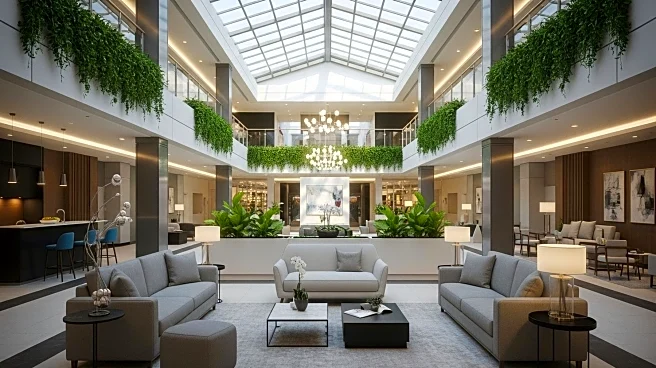What is the story about?
What's Happening?
As the U.S. faces a significant housing shortage, developers are considering converting vacant shopping malls into residential spaces. With millions of square feet of empty retail space and a housing deficit of 3.8 million homes, the idea of repurposing malls has gained traction. The decline of malls, accelerated by the rise of e-commerce and changing consumer preferences, presents an opportunity to create mixed-use developments that combine residential and commercial spaces. This approach could provide a partial solution to the housing crisis while revitalizing struggling retail areas.
Why It's Important?
Transforming malls into housing could address the urgent need for affordable homes in the U.S. It offers a way to utilize existing infrastructure, potentially speeding up the availability of new housing units. This strategy also aligns with changing consumer preferences for community-oriented living spaces, which could enhance the appeal of these developments. Additionally, it could breathe new life into dying retail areas, attracting new businesses and services to support the residential community, thereby boosting local economies.
What's Next?
Developers and city planners may increasingly explore mall-to-apartment conversions as a viable solution to the housing shortage. This could involve navigating complex zoning laws and overcoming architectural challenges to make these spaces suitable for residential use. As more projects are initiated, there may be a push for policy changes to facilitate such conversions. The success of these developments could inspire similar transformations of other vacant commercial properties, such as hotels or schools.
Beyond the Headlines
The conversion of malls into housing raises questions about urban planning and the future of retail spaces. It challenges traditional notions of community and living spaces, potentially leading to innovative designs that prioritize shared amenities and walkability. This trend could also reflect broader shifts in societal values, emphasizing experiences and community over material possessions. As these projects progress, they may influence discussions on sustainable development and the repurposing of existing structures to meet modern needs.















